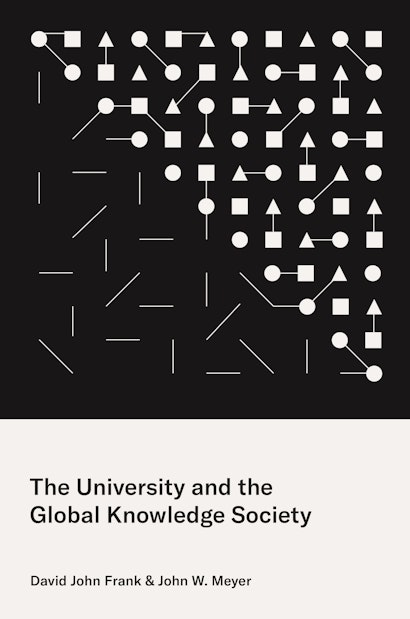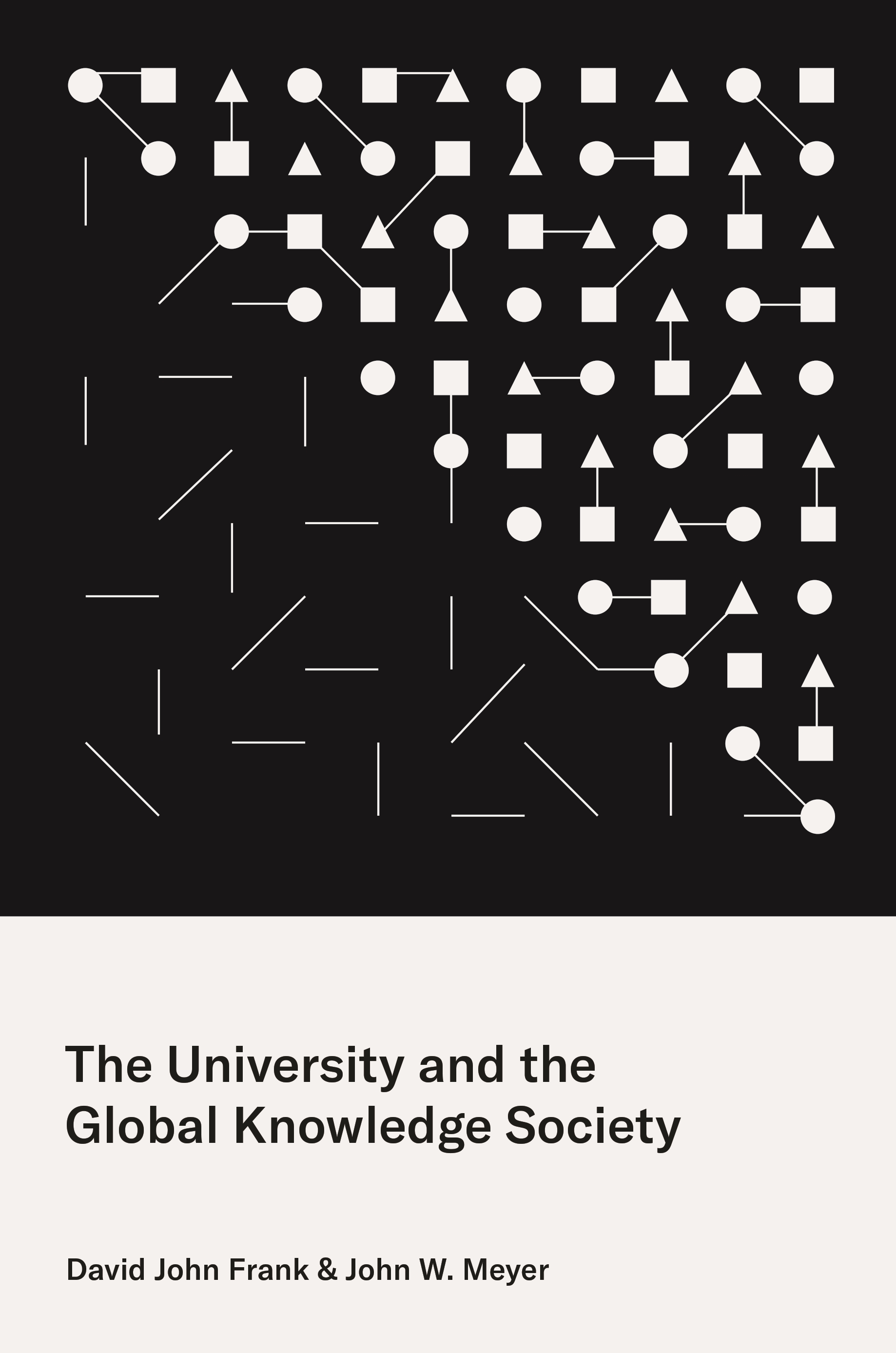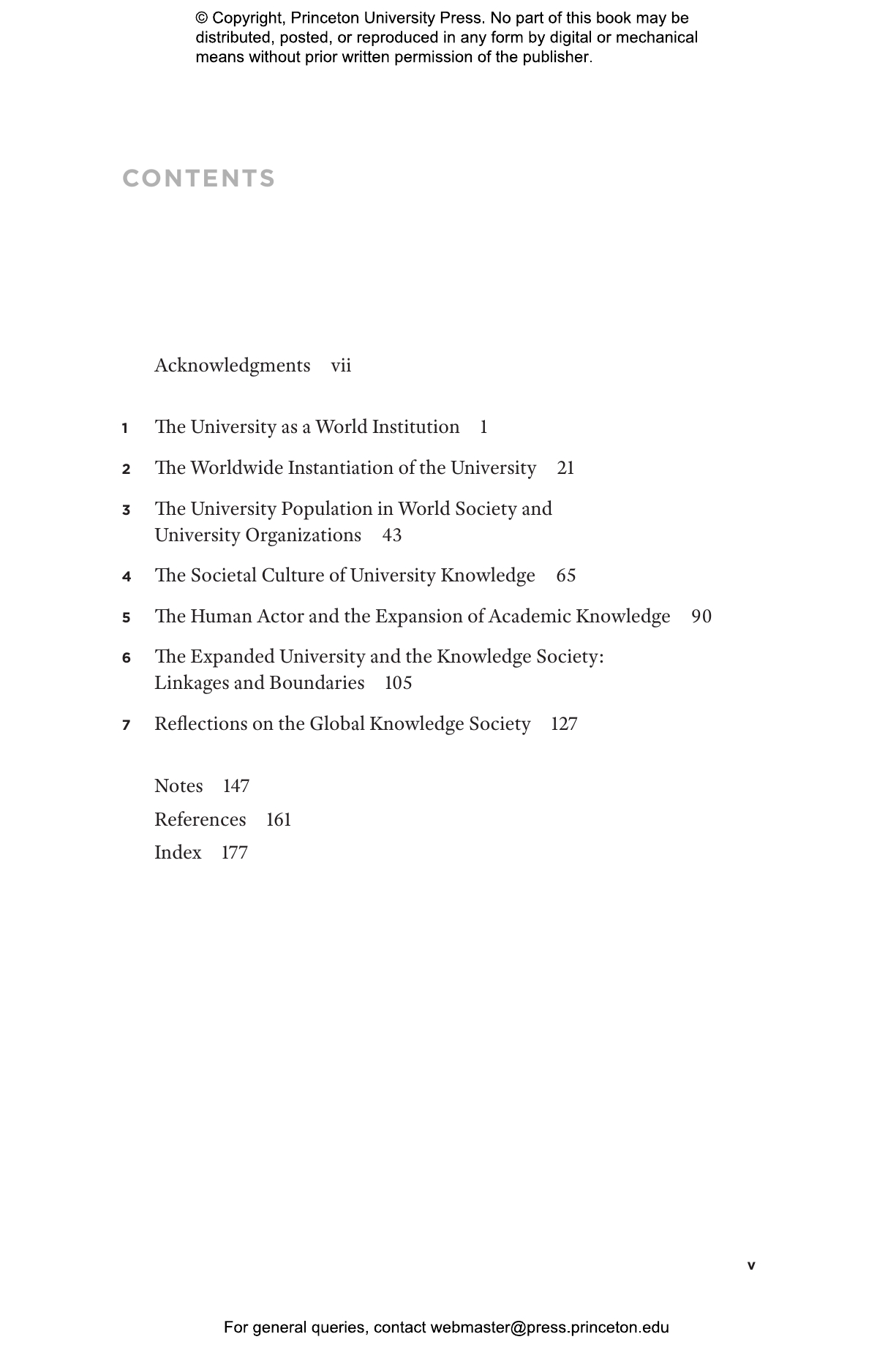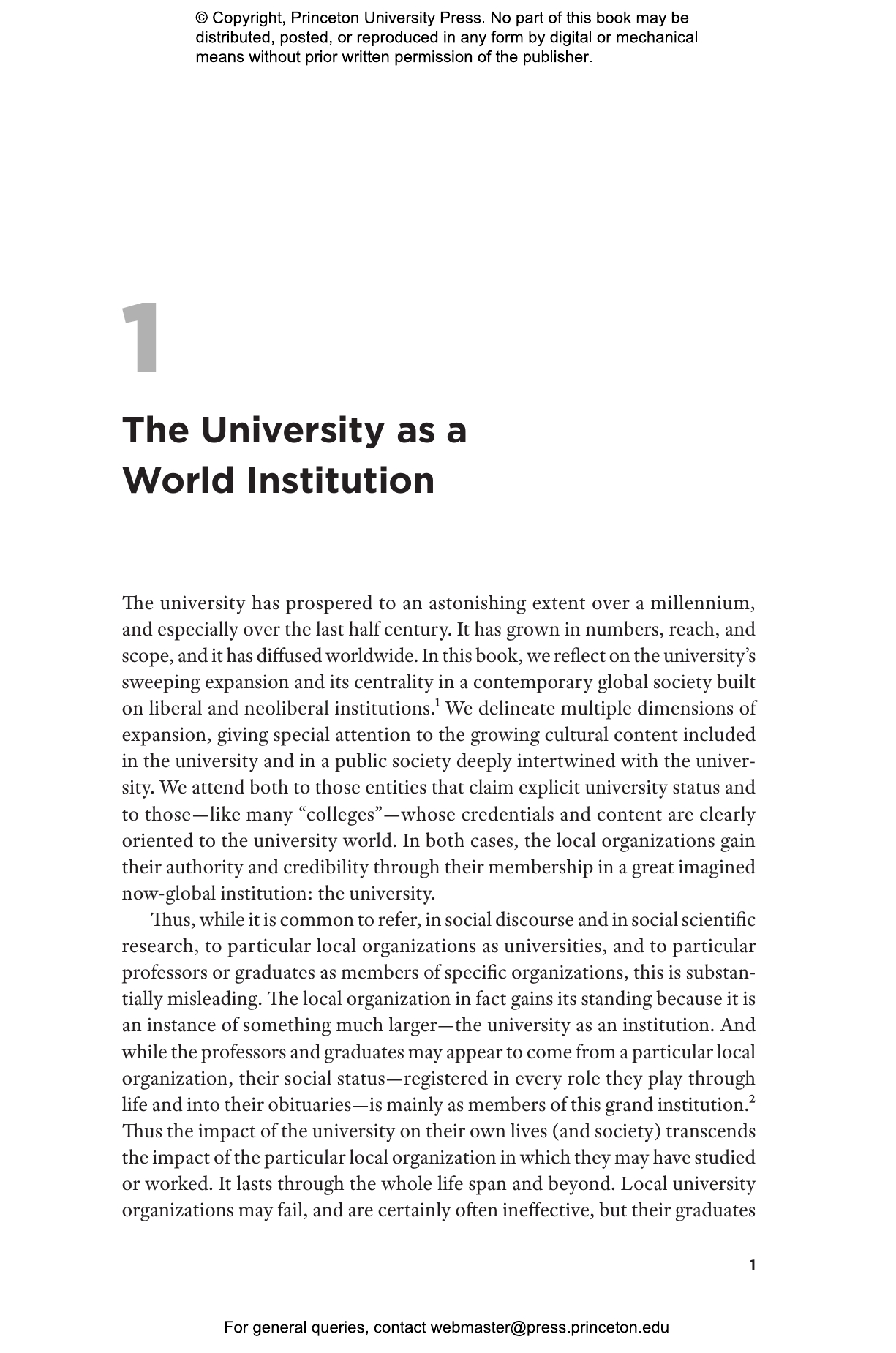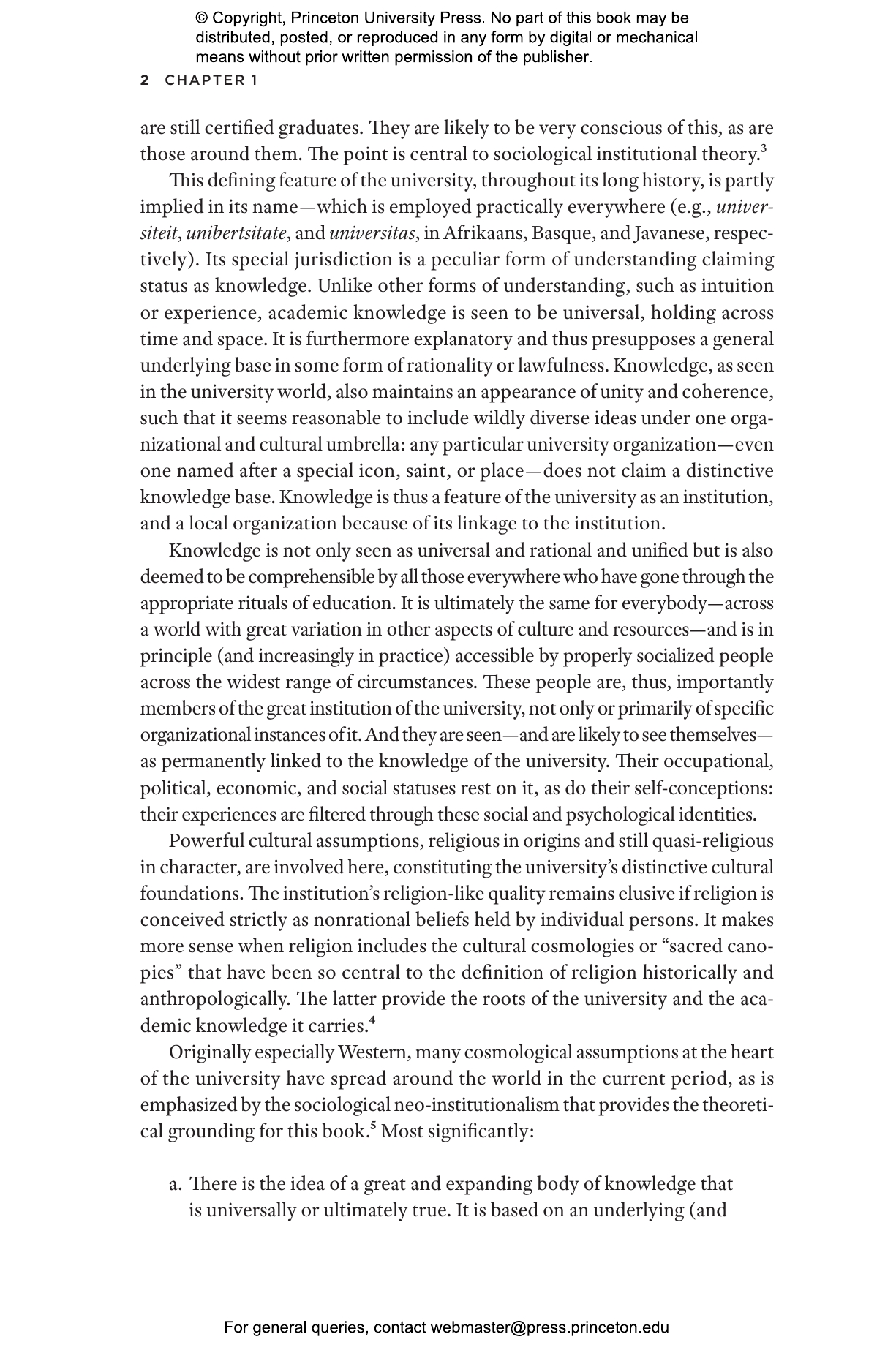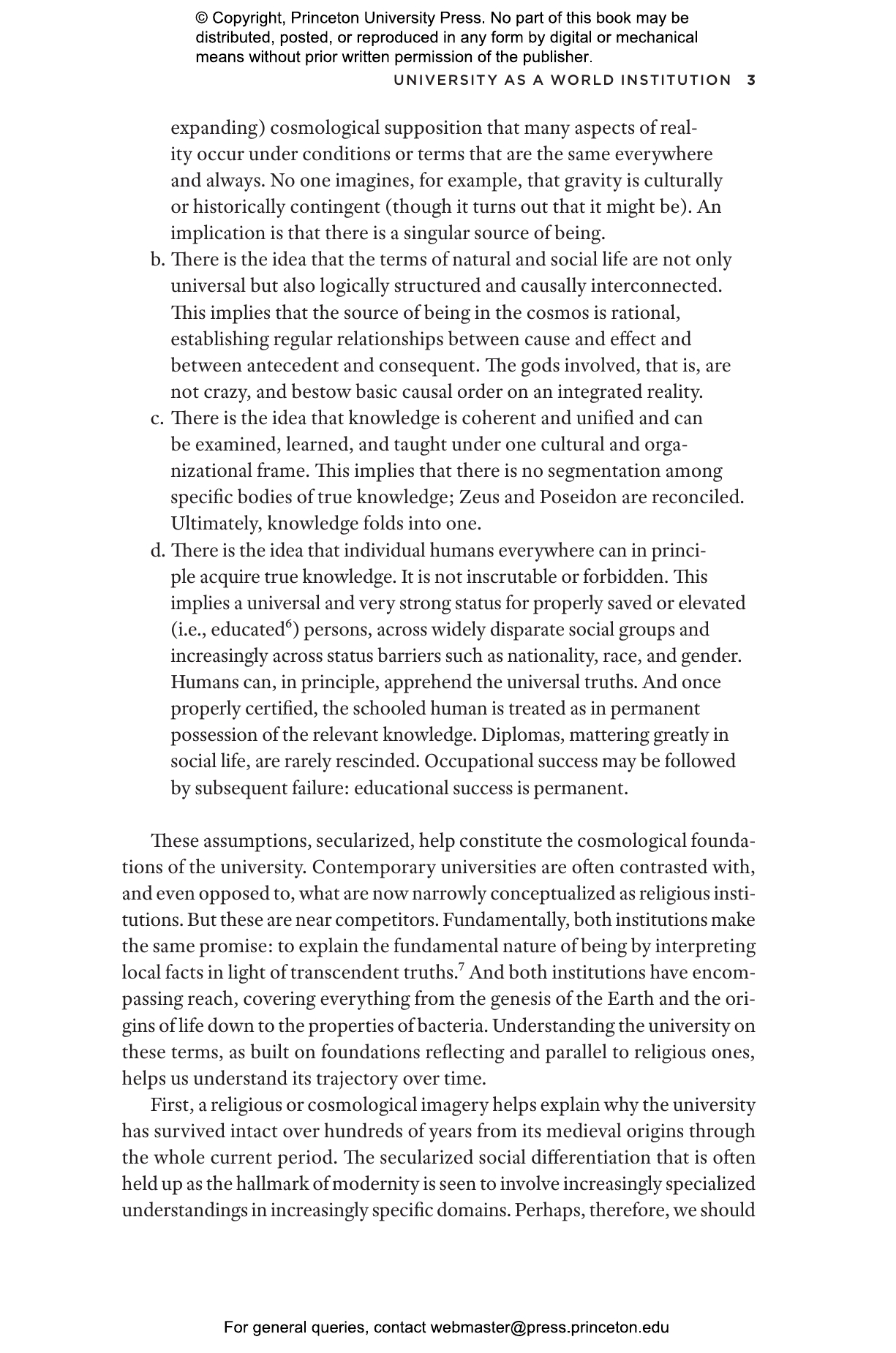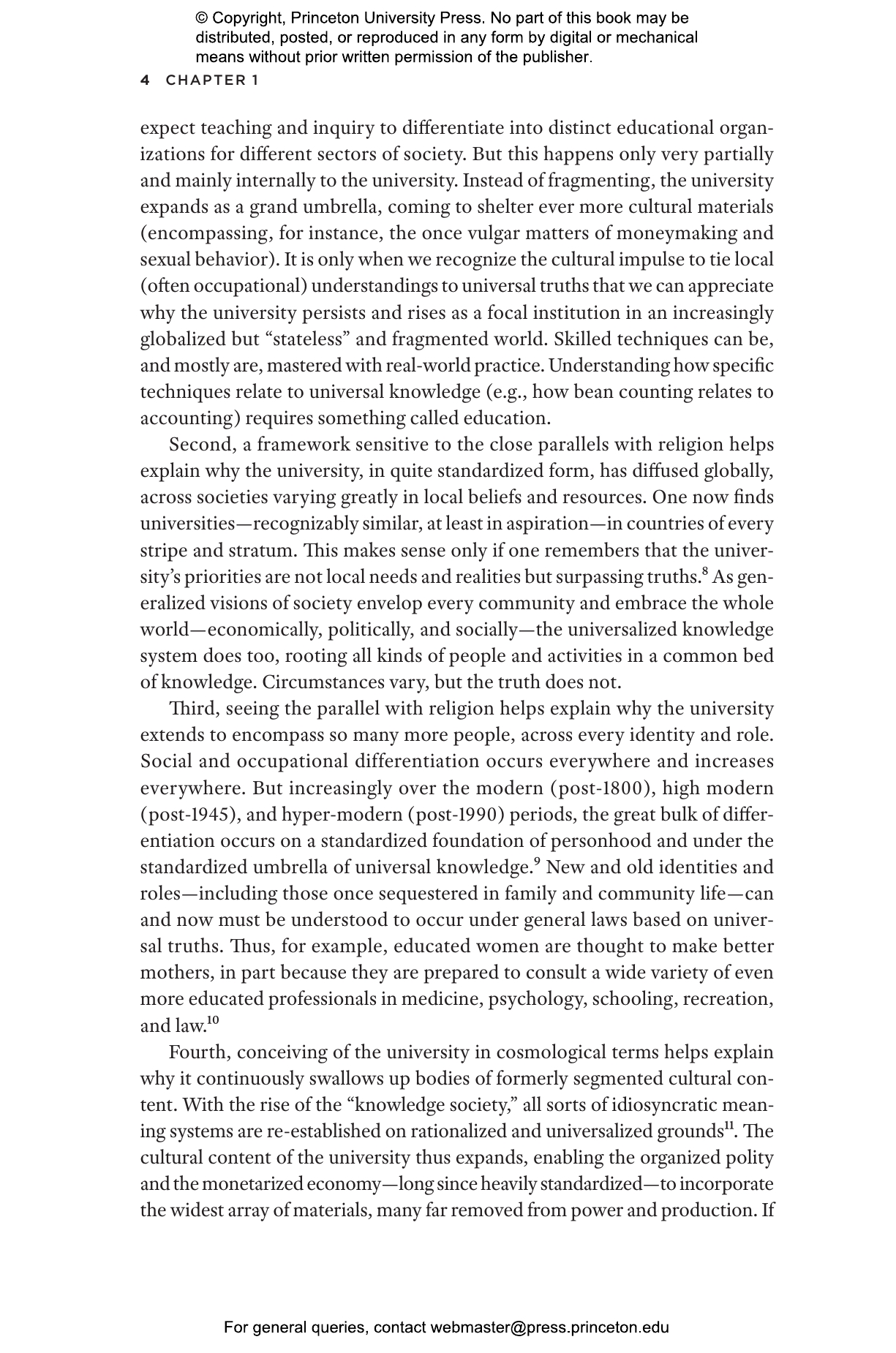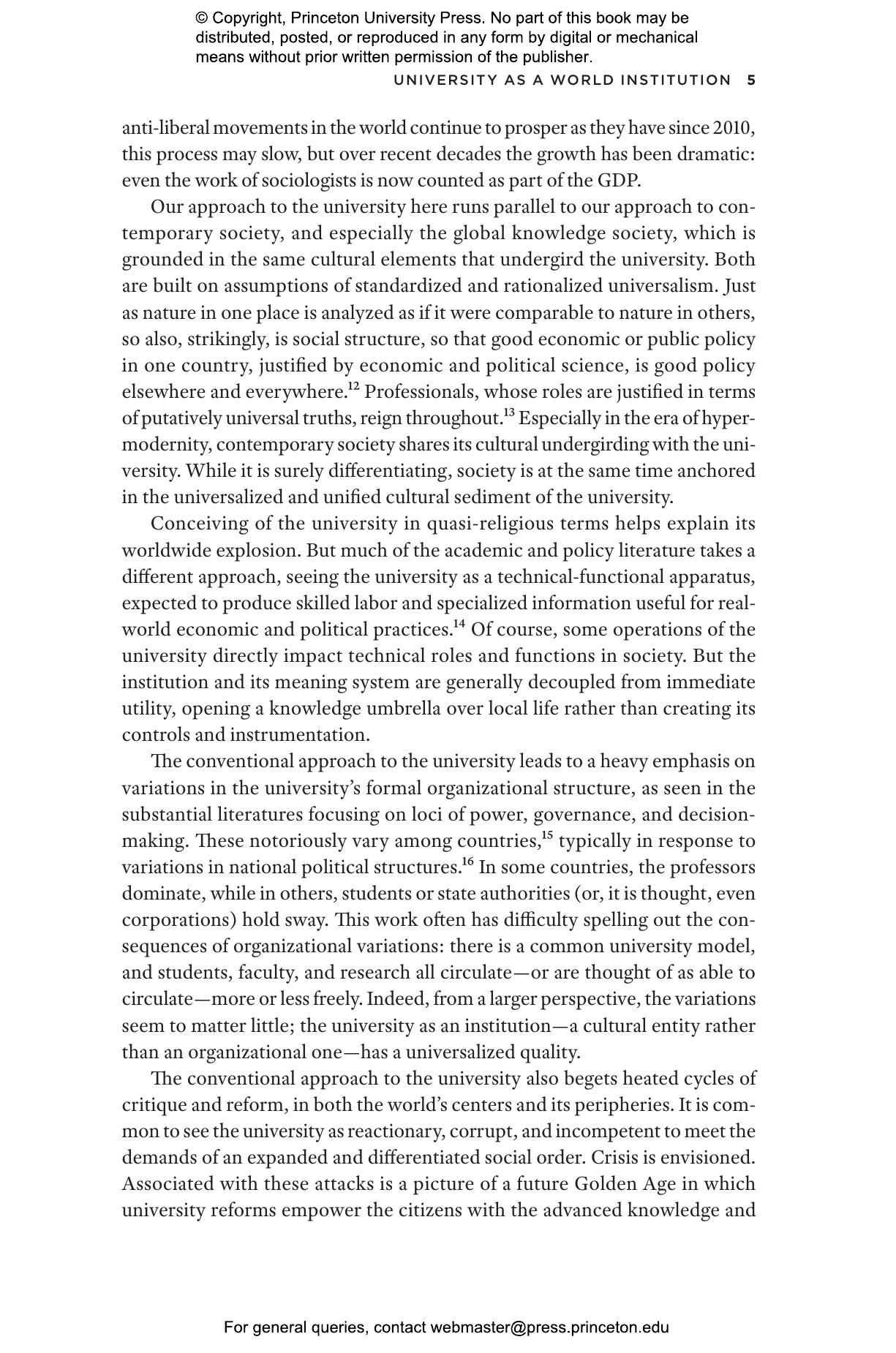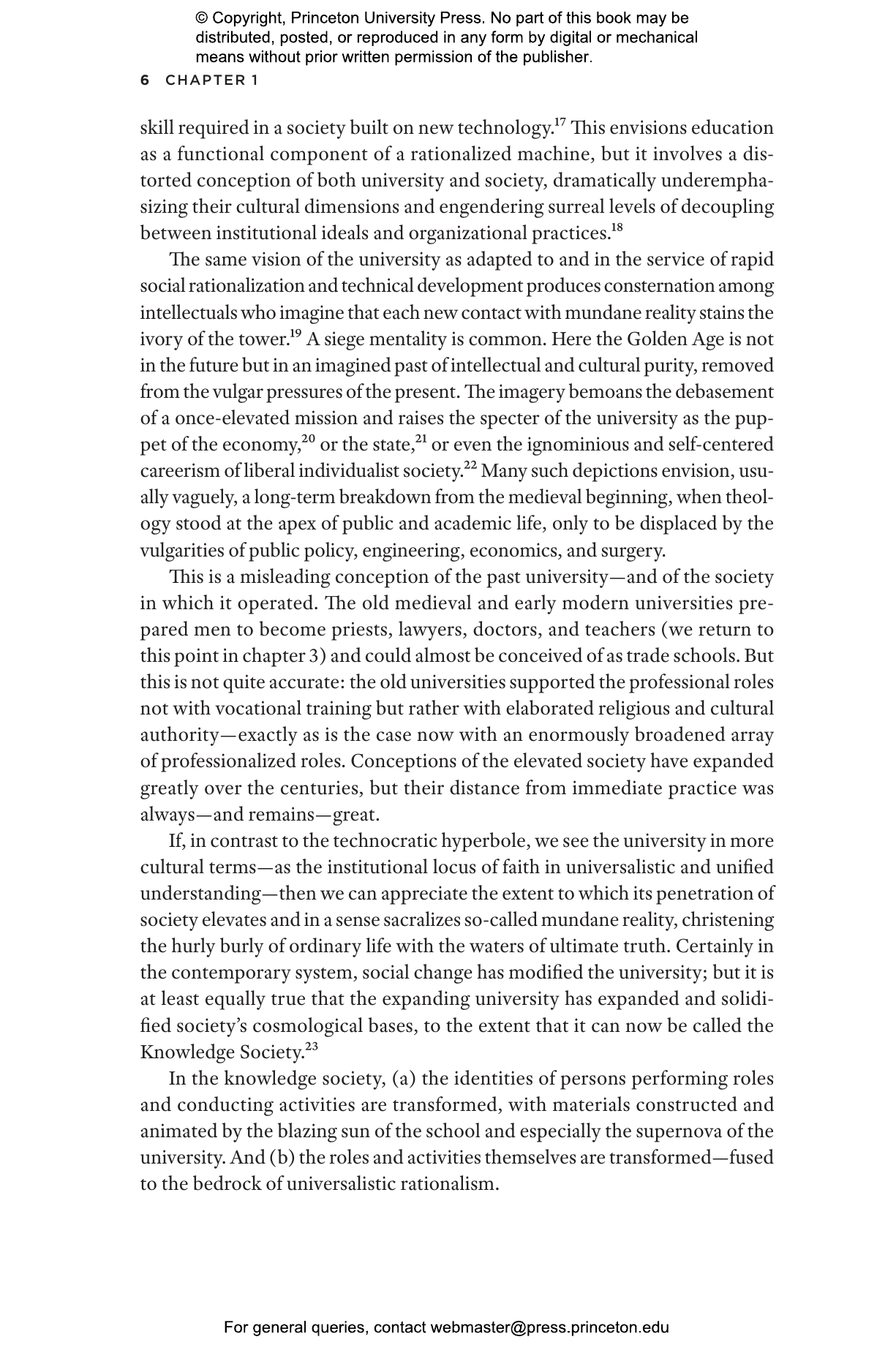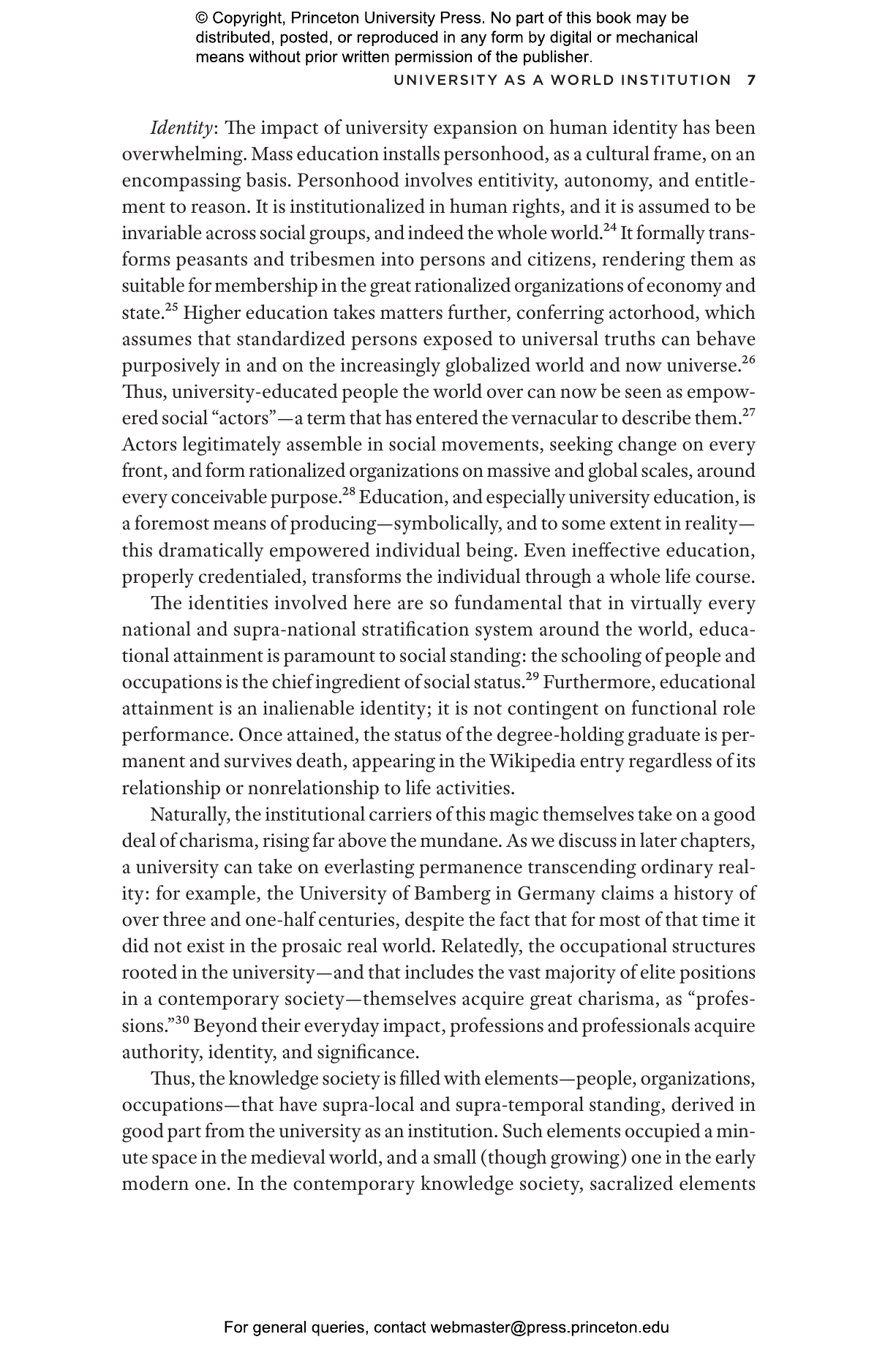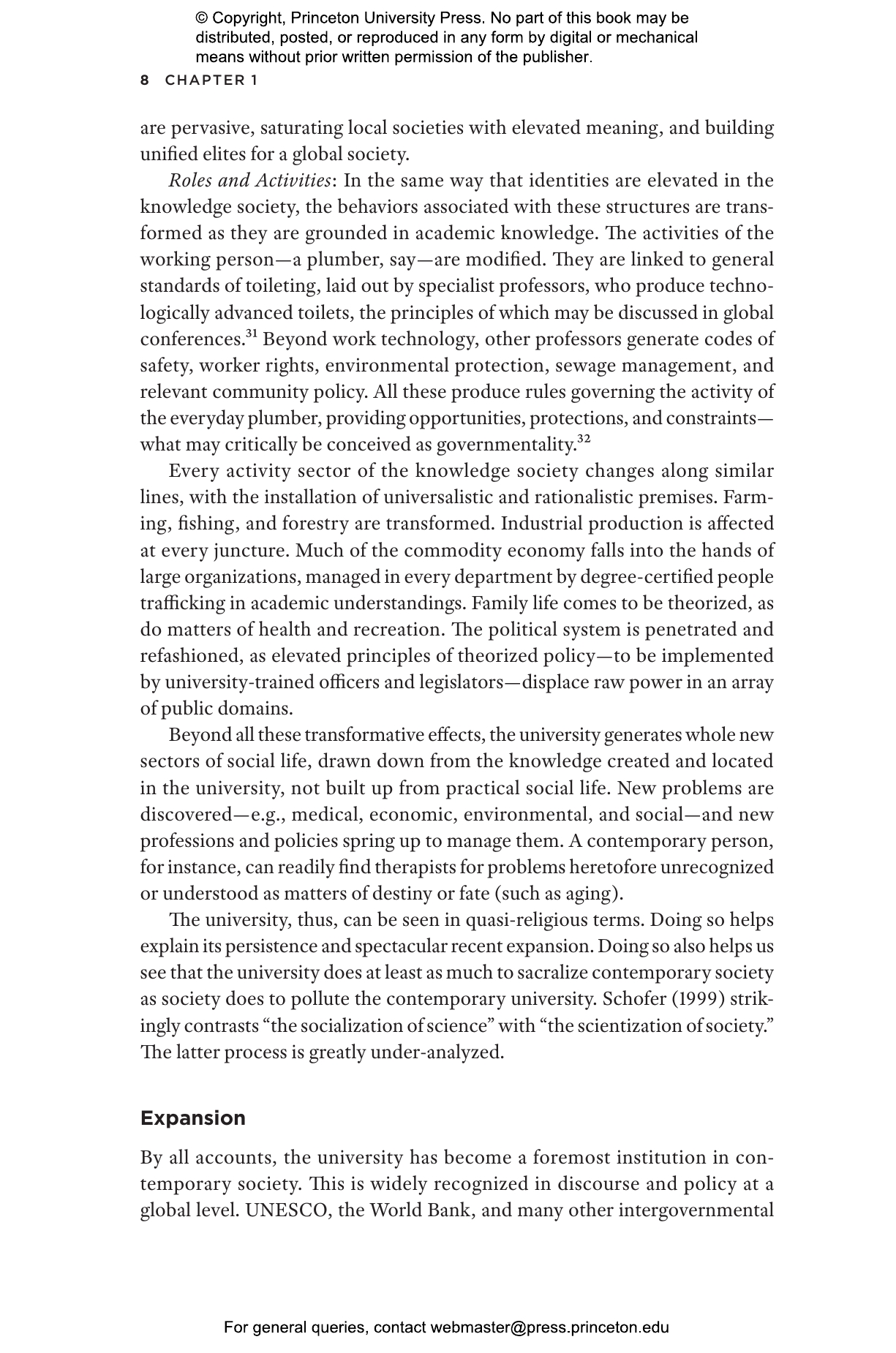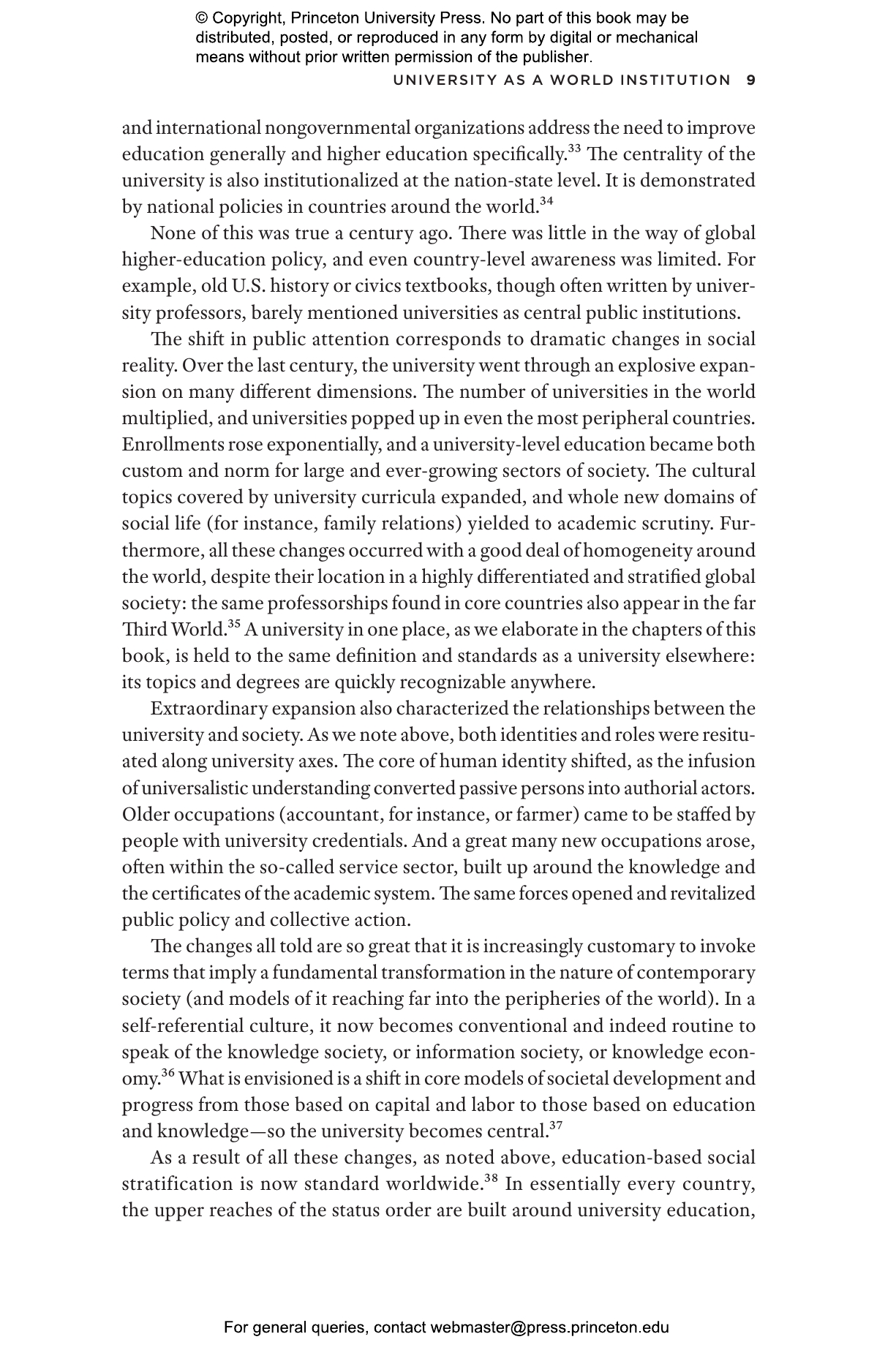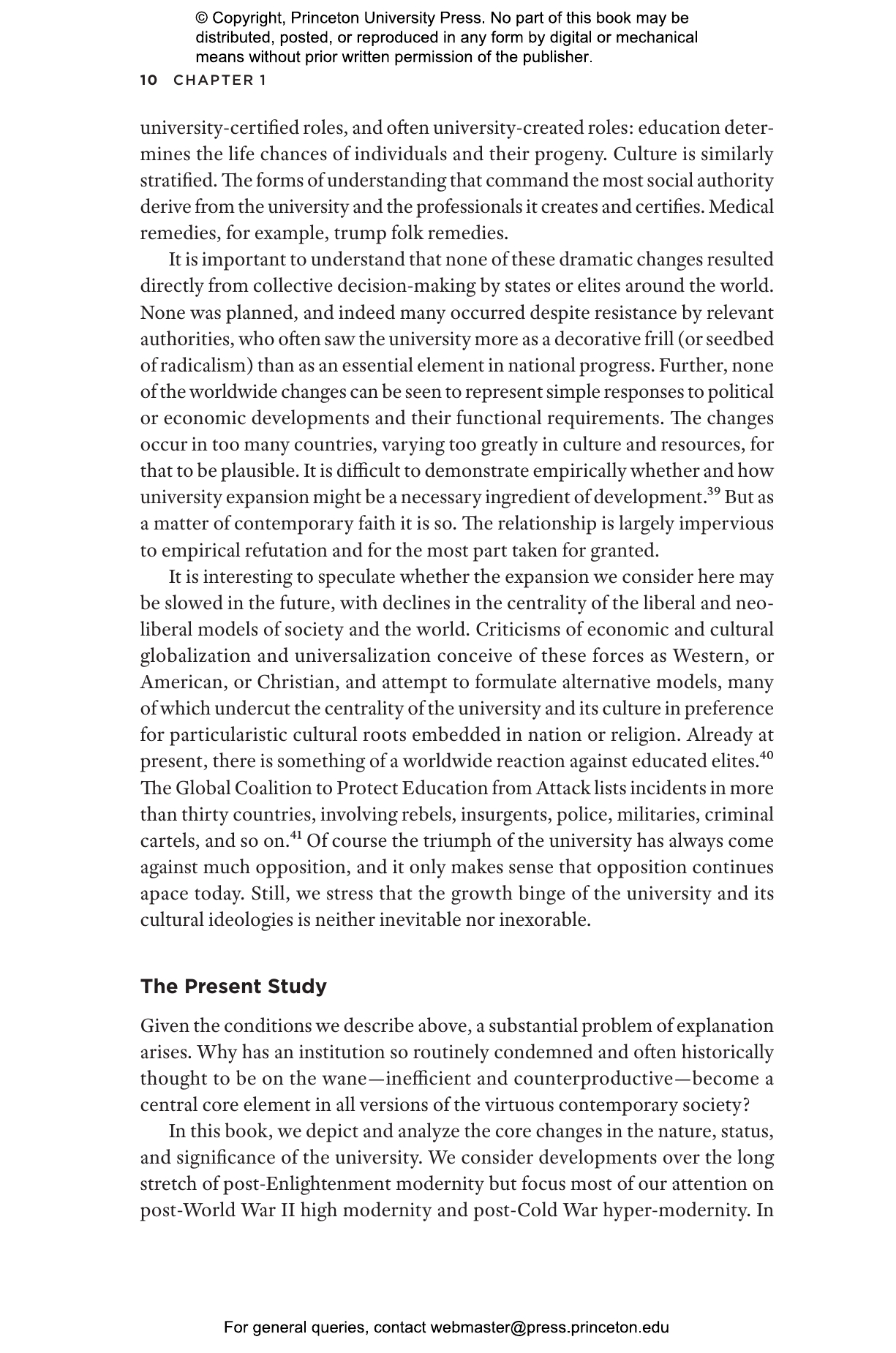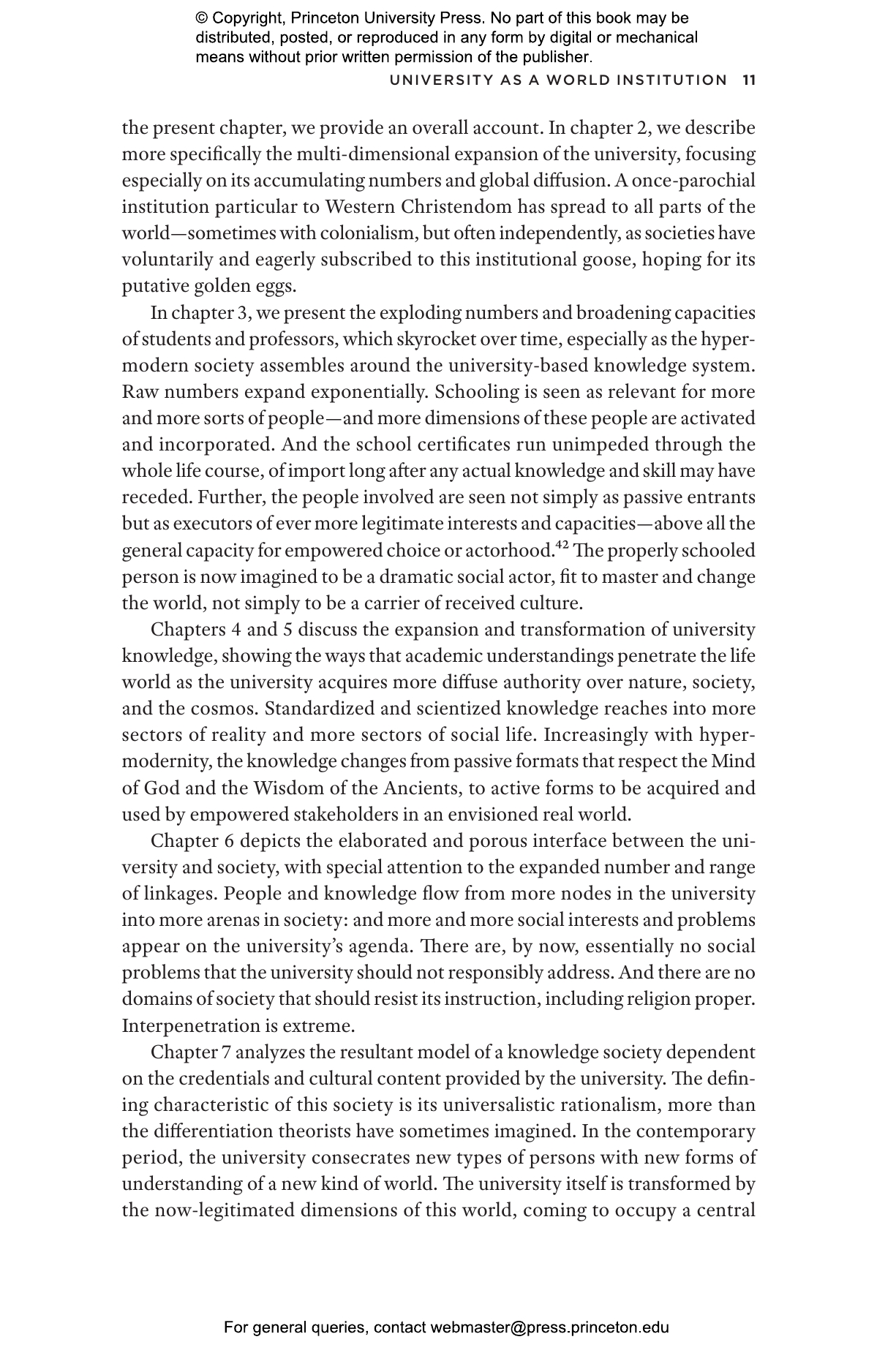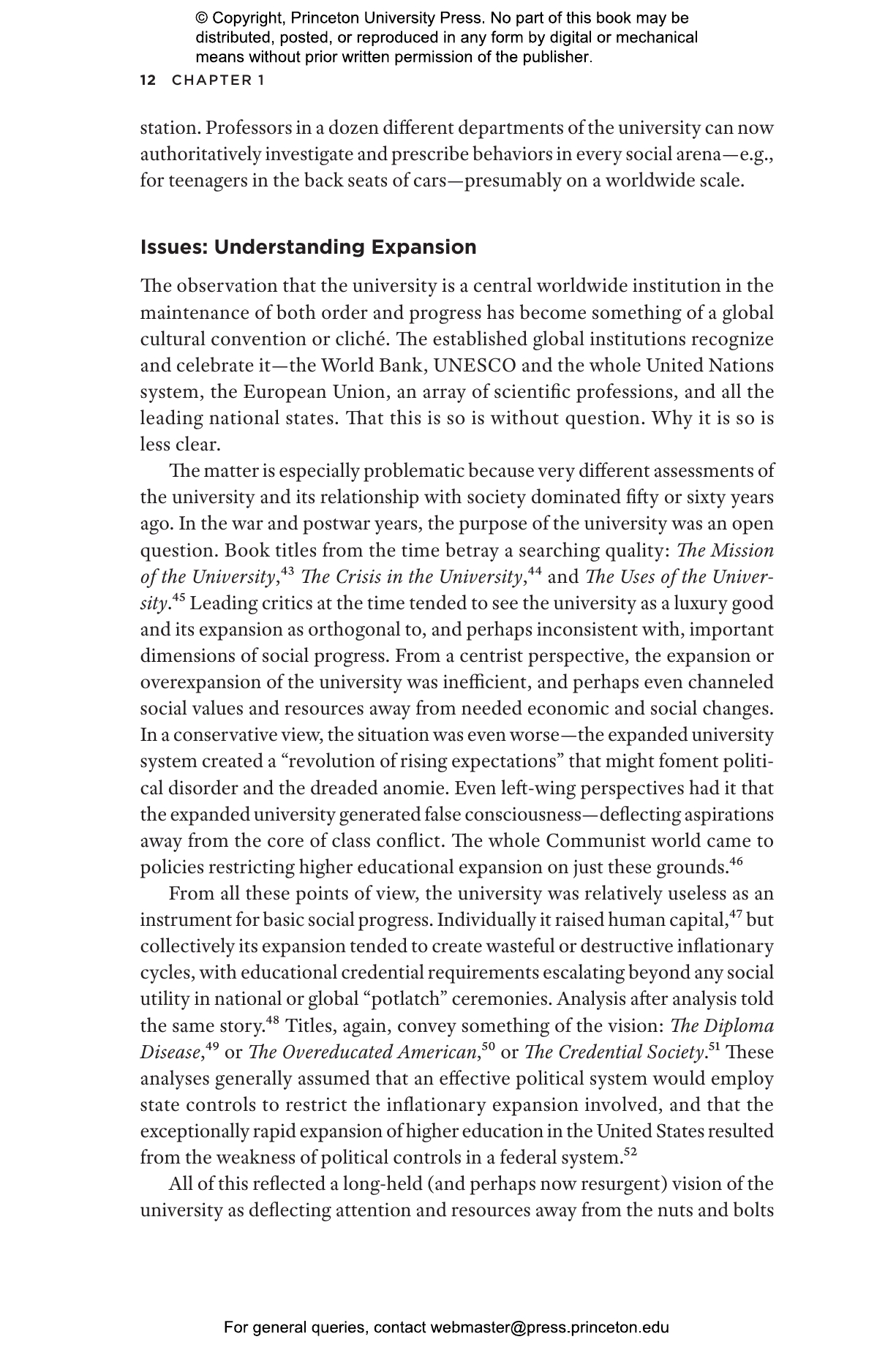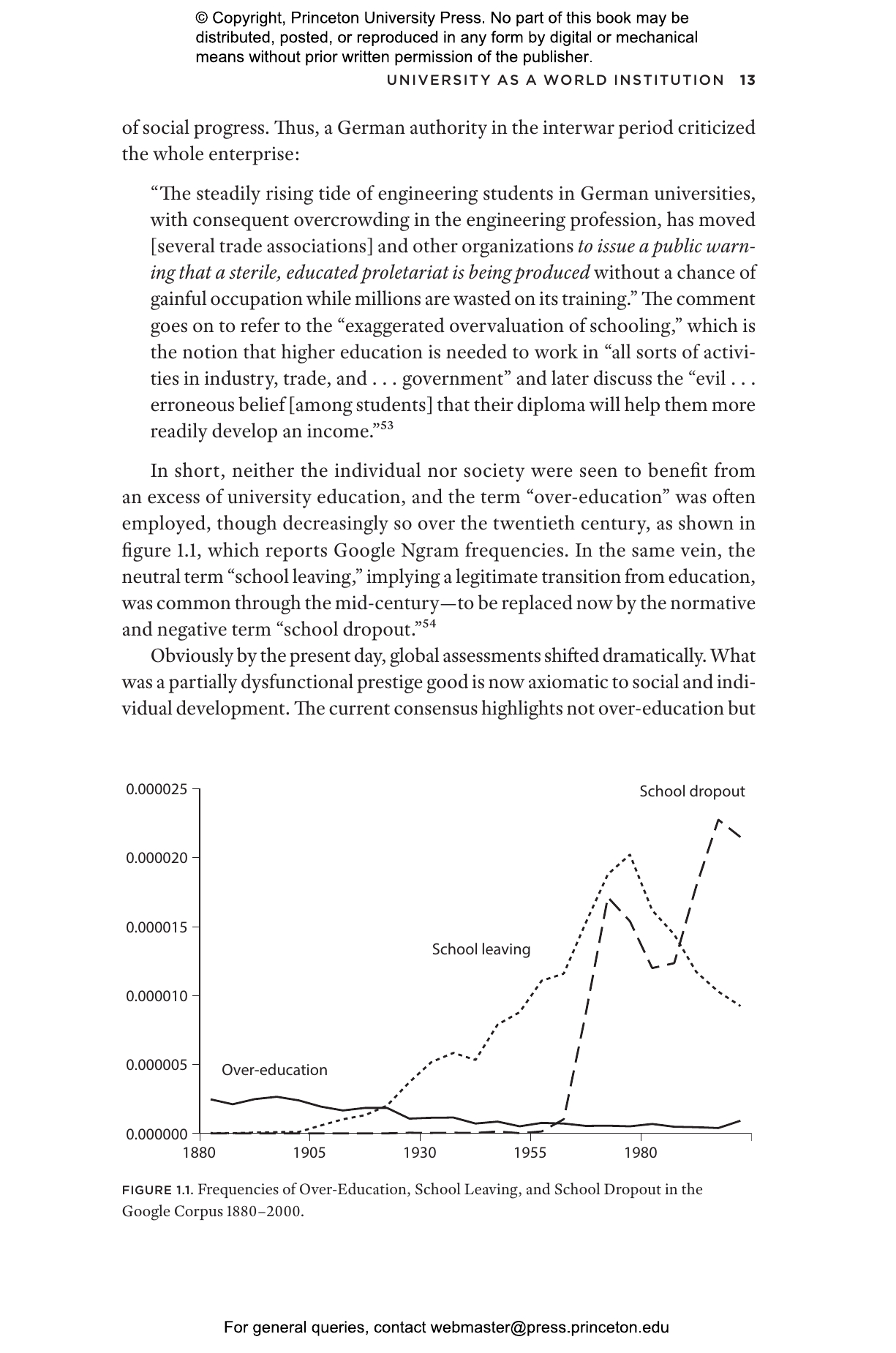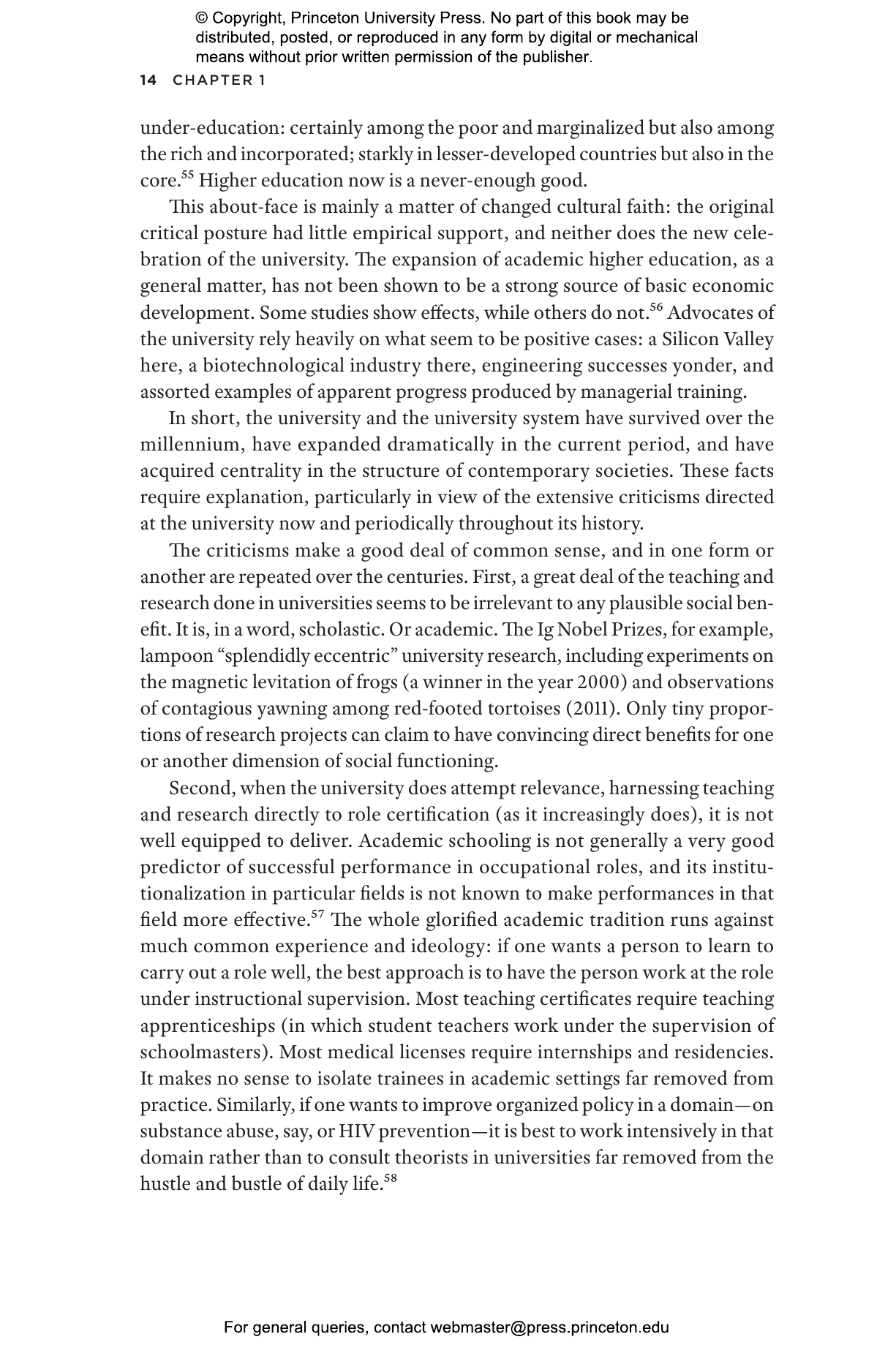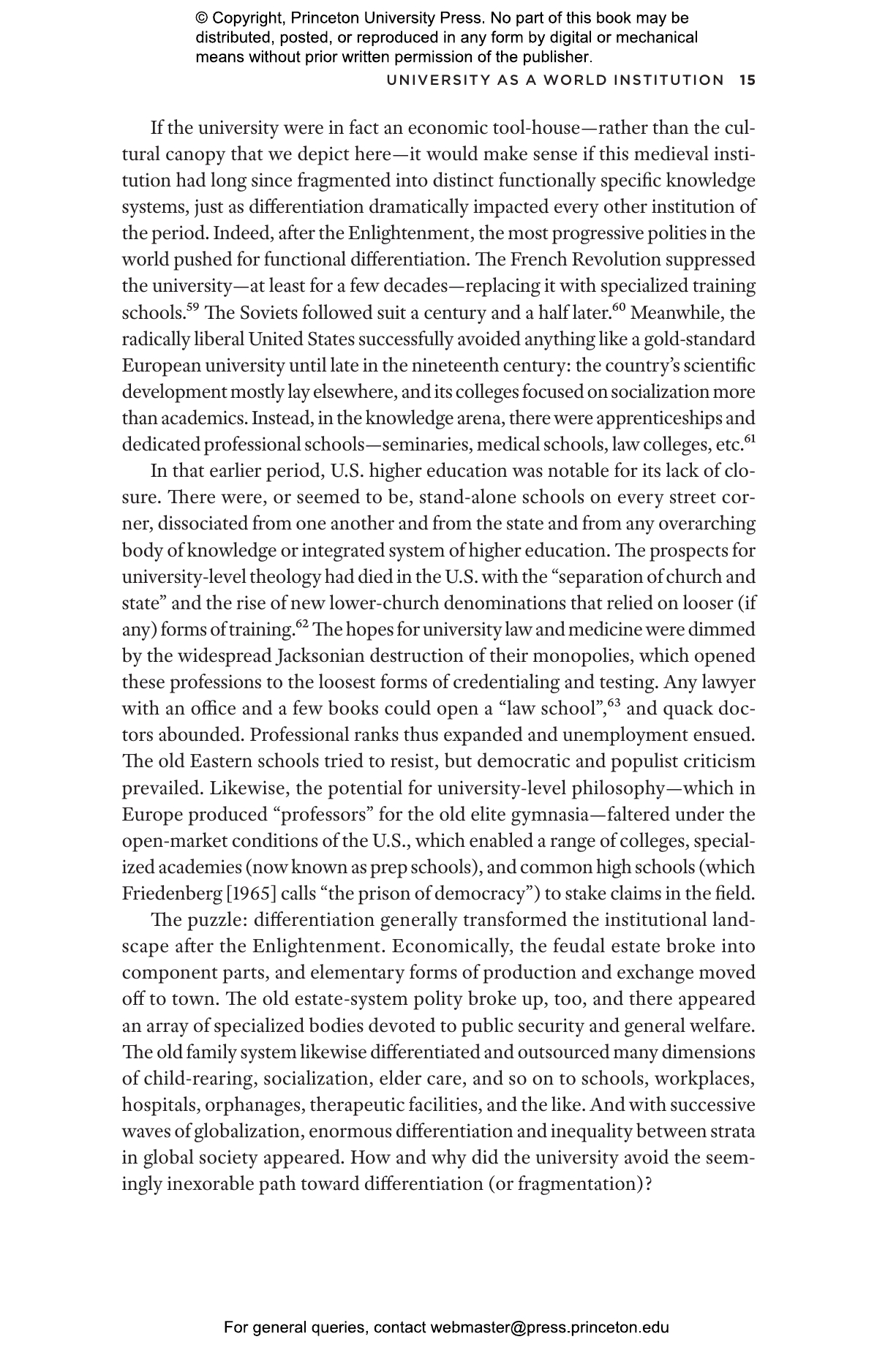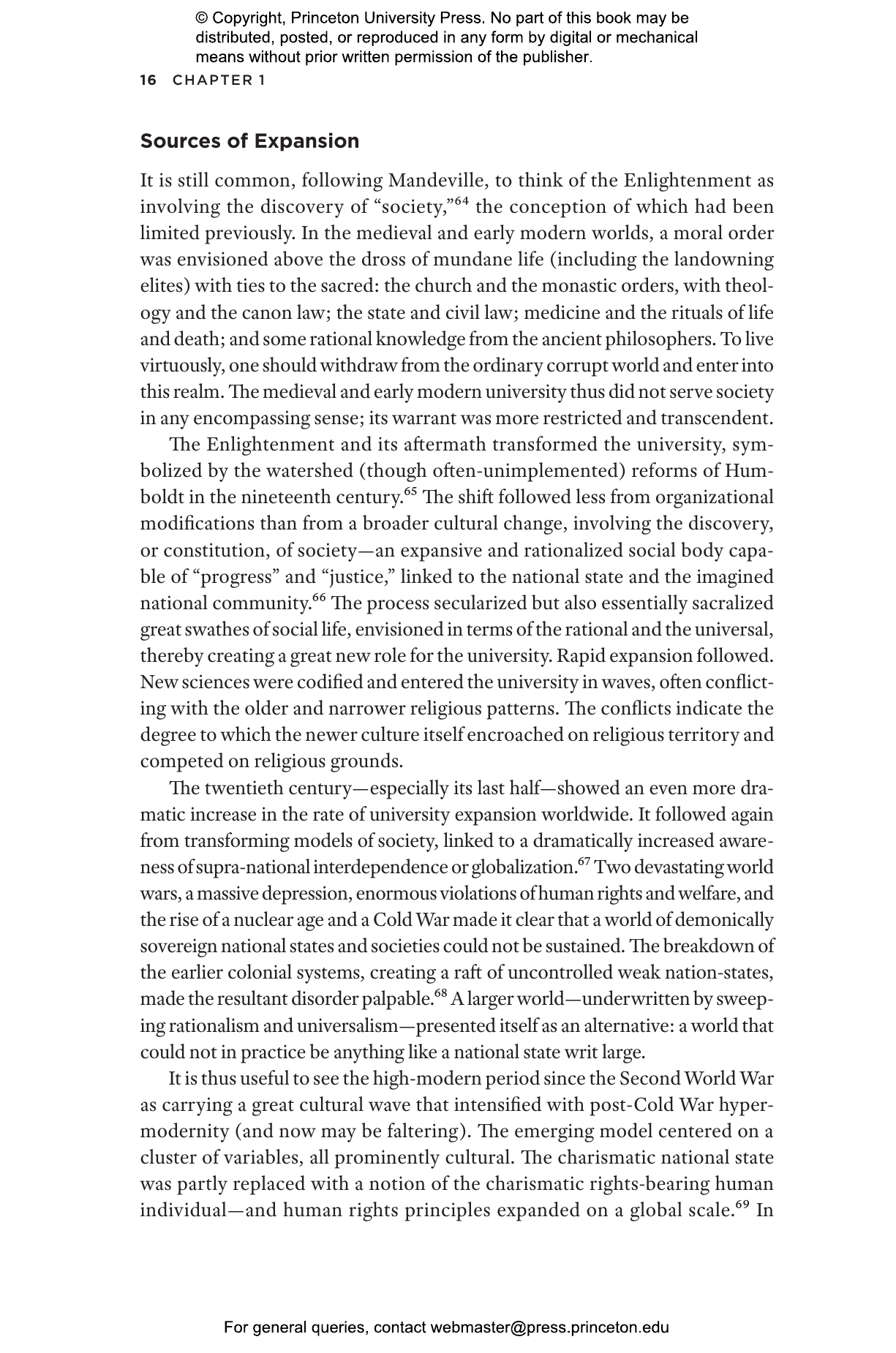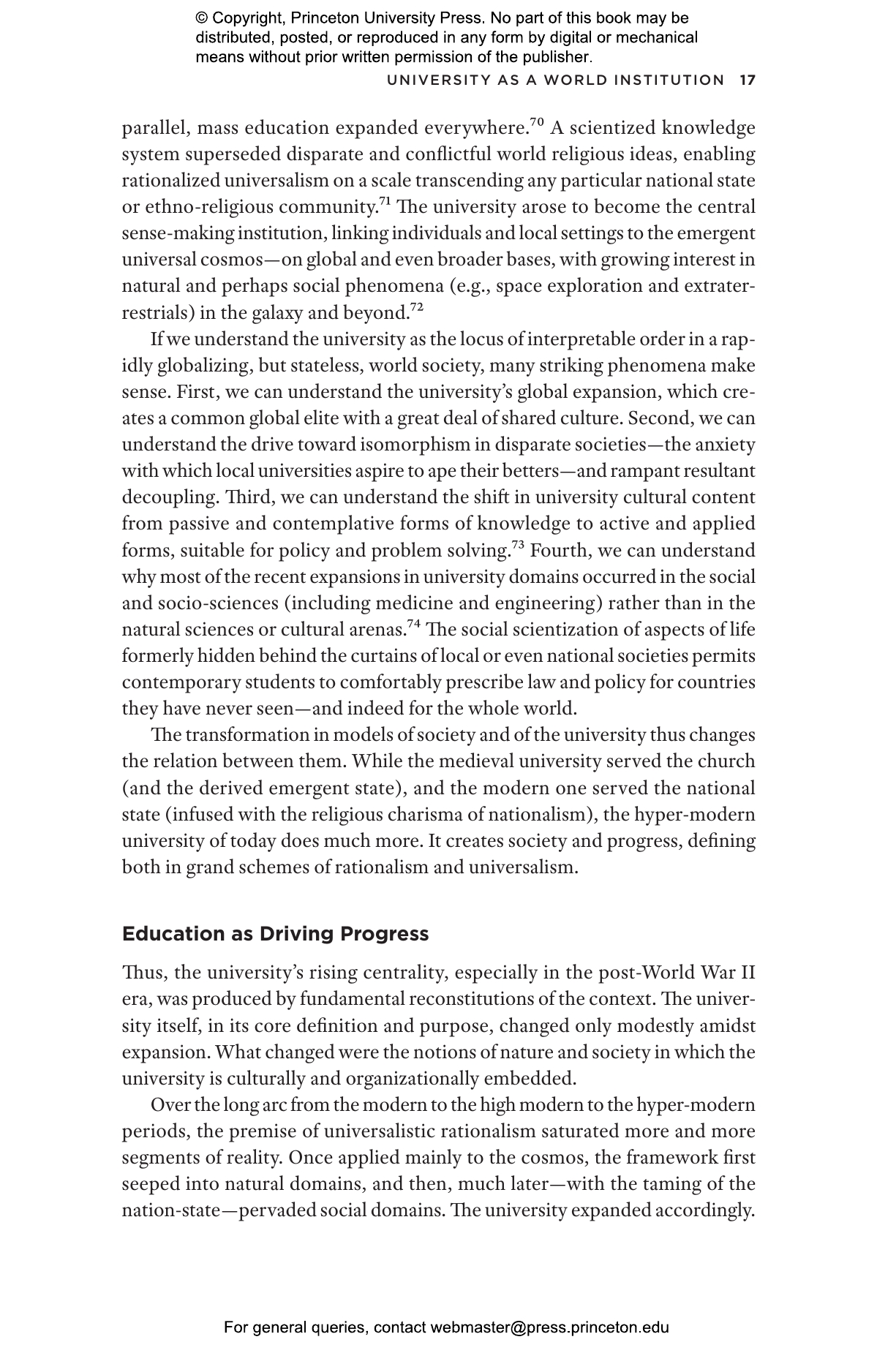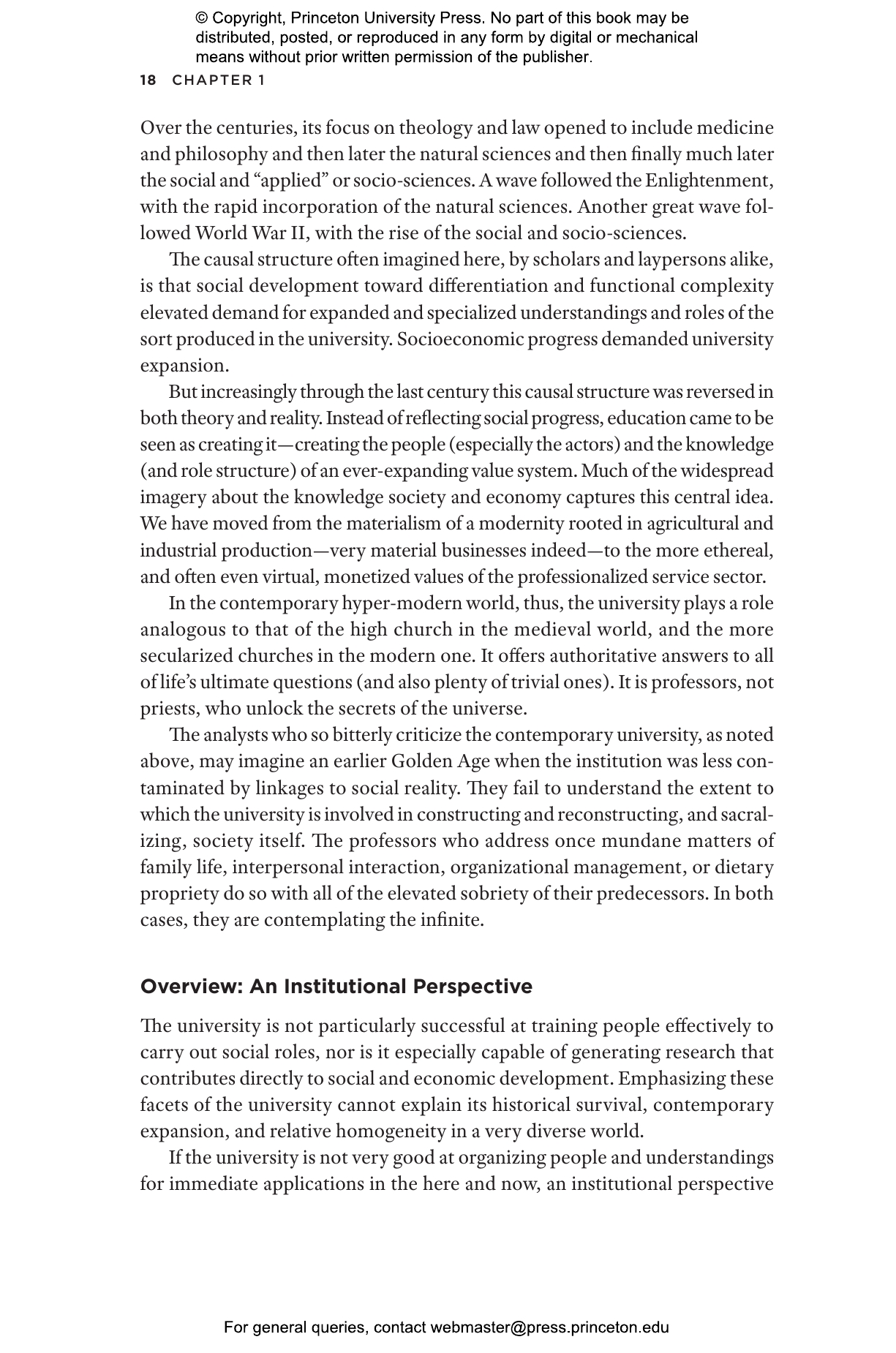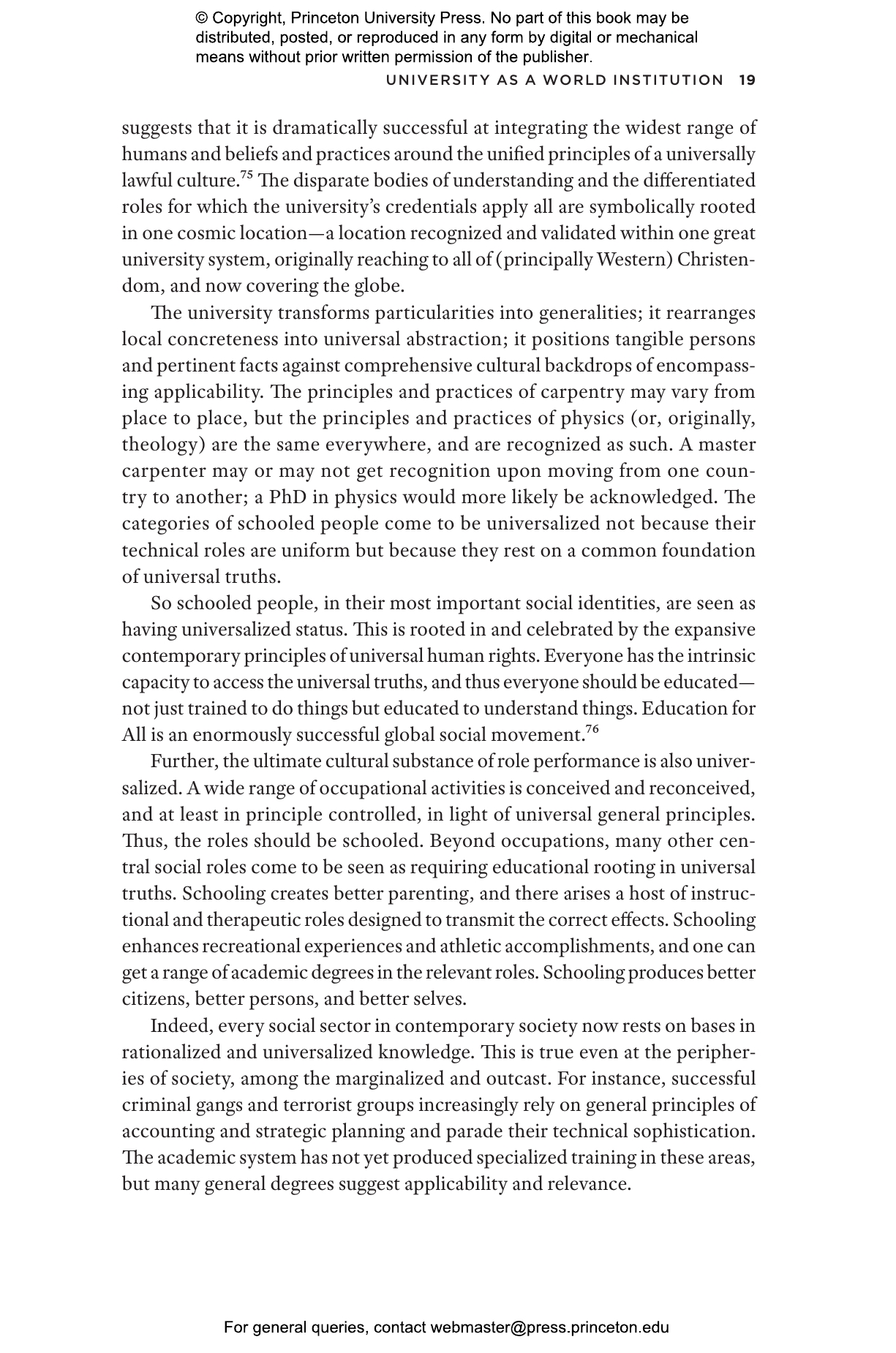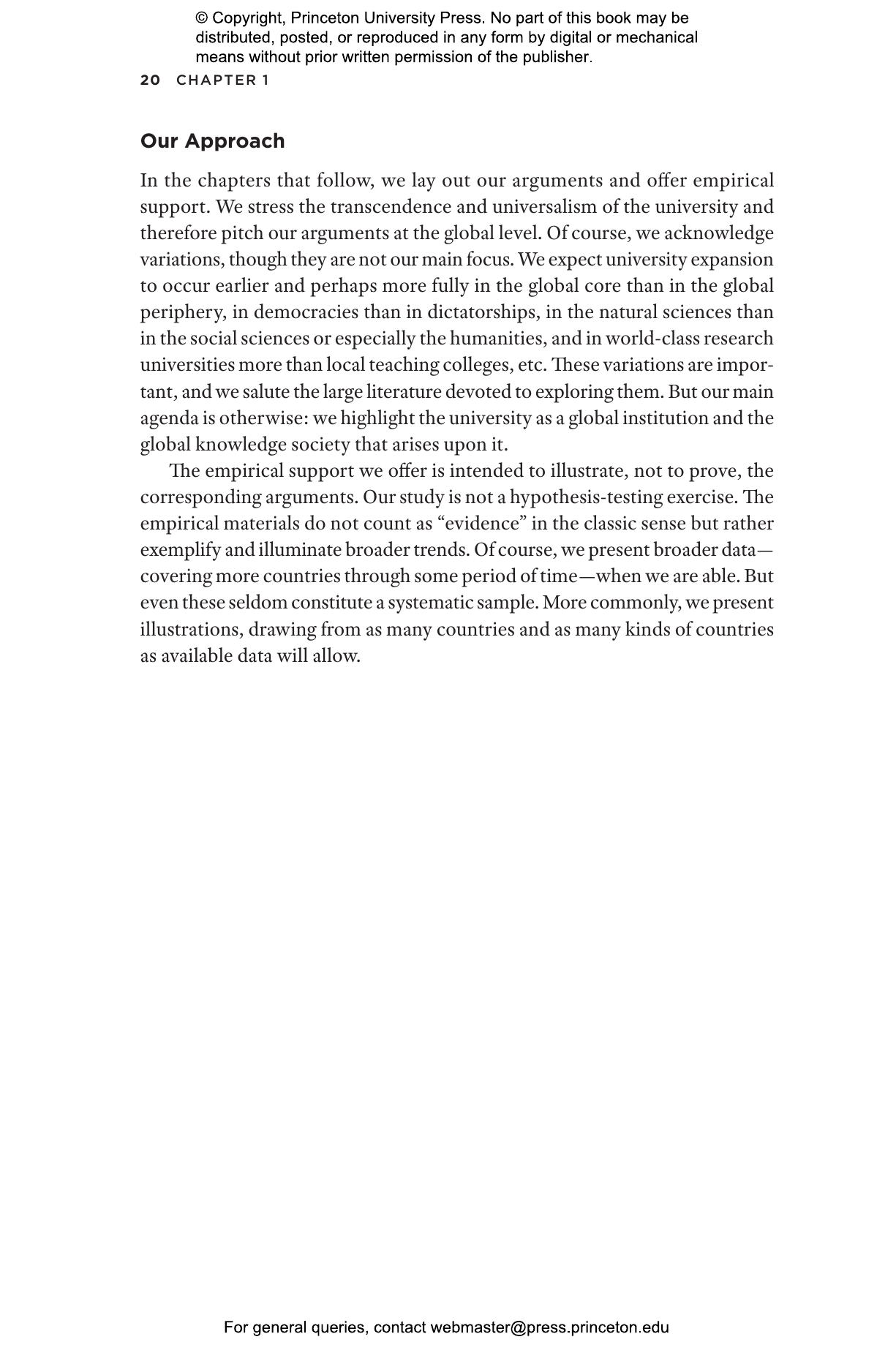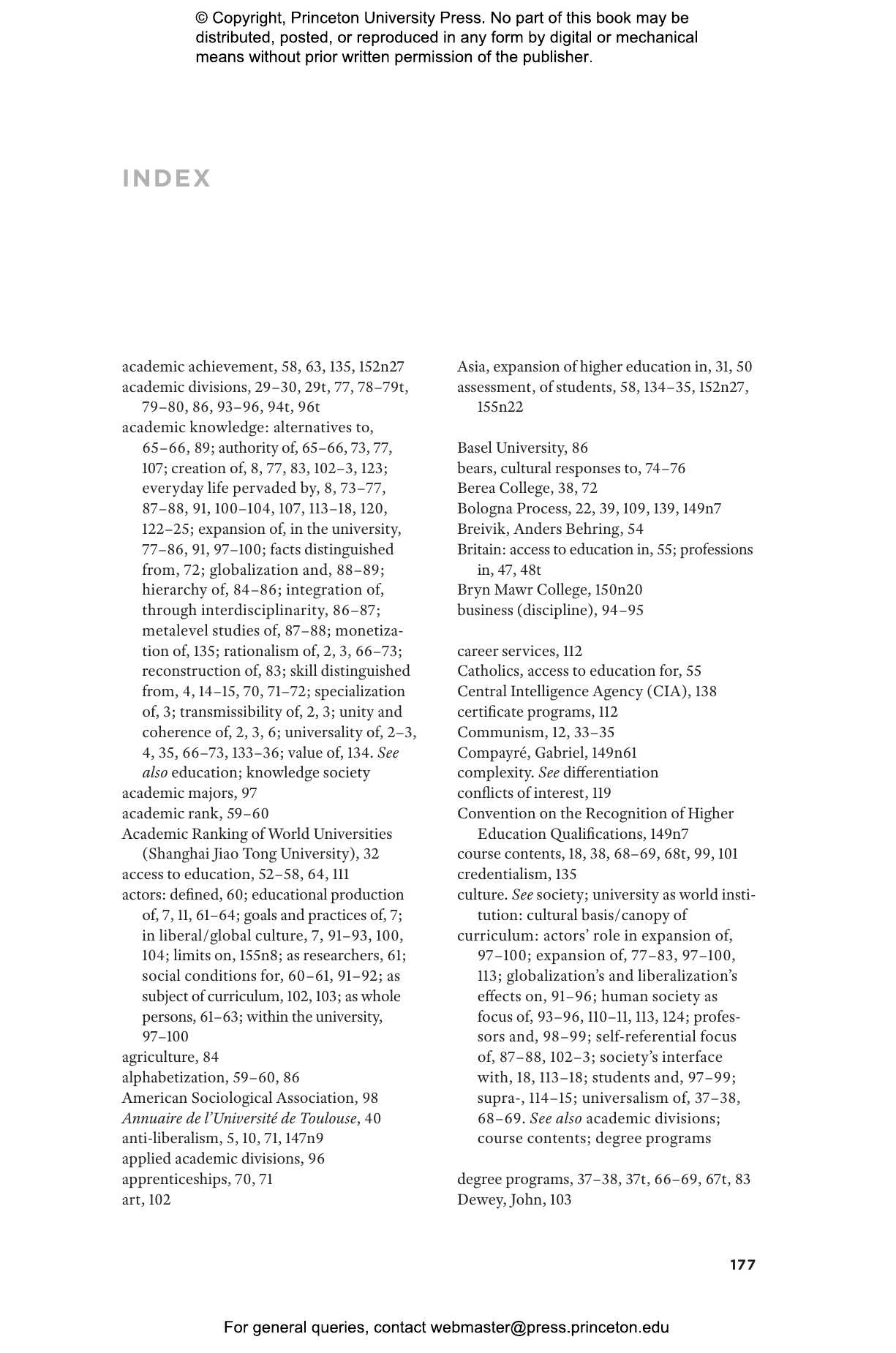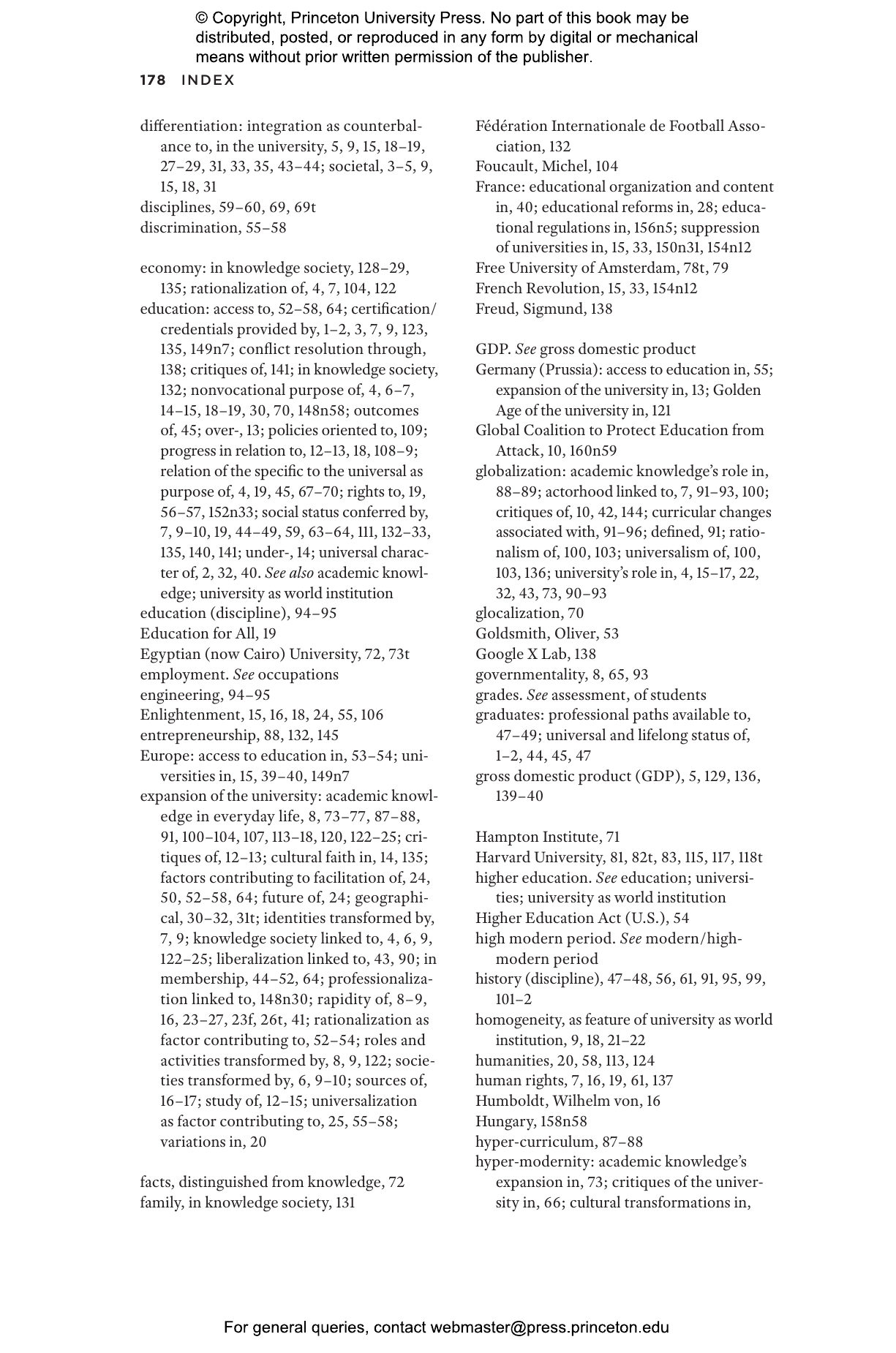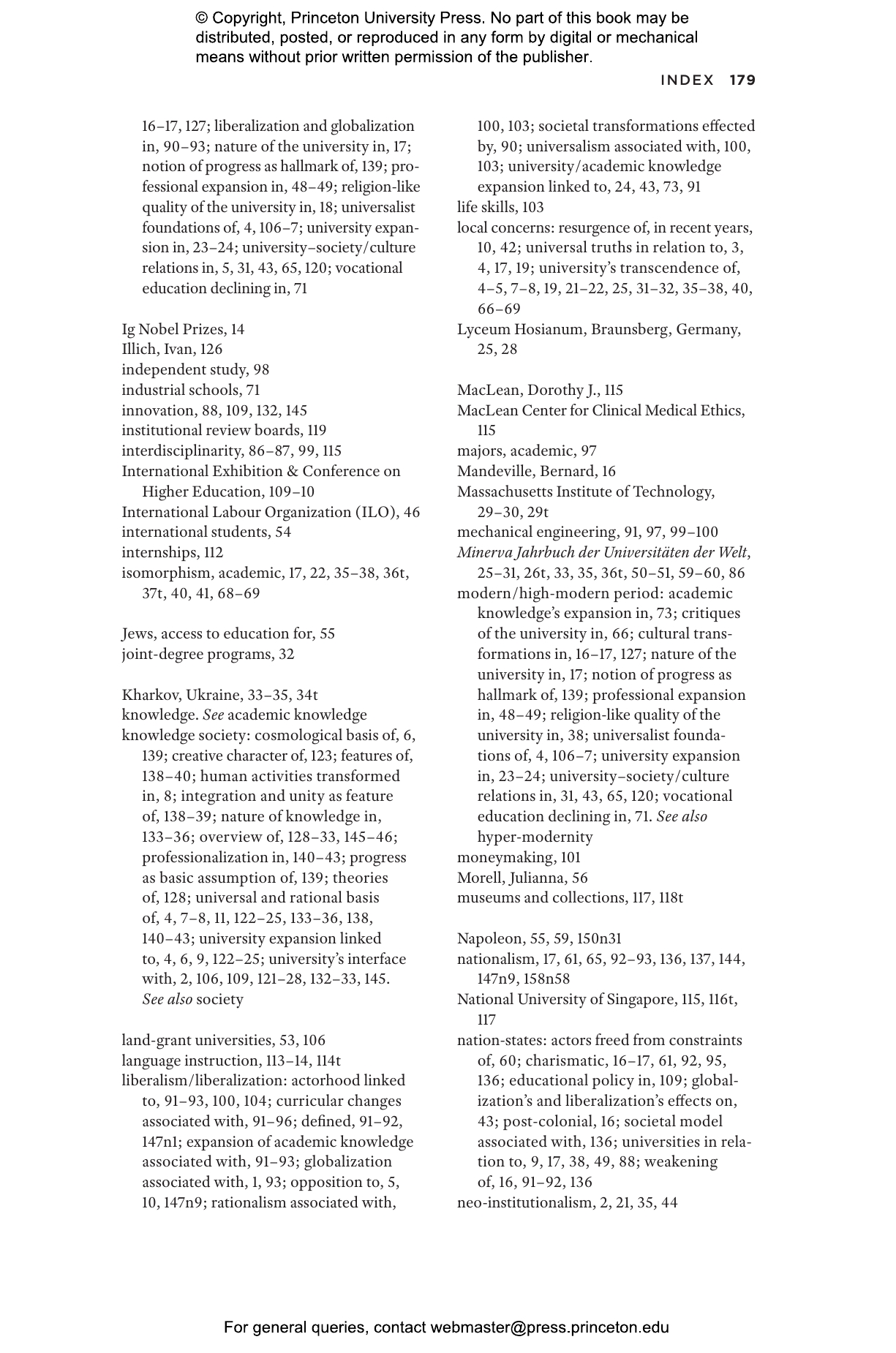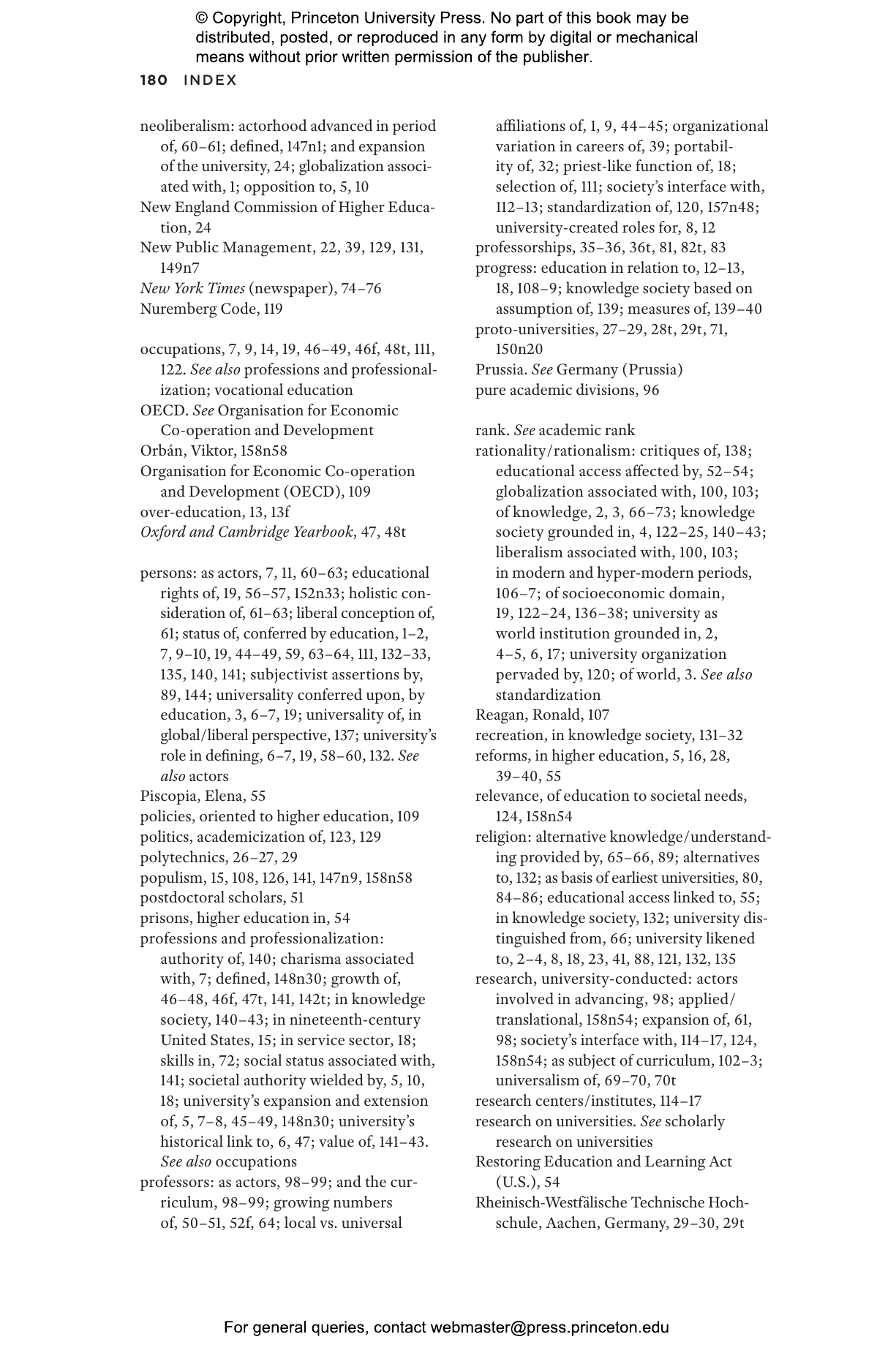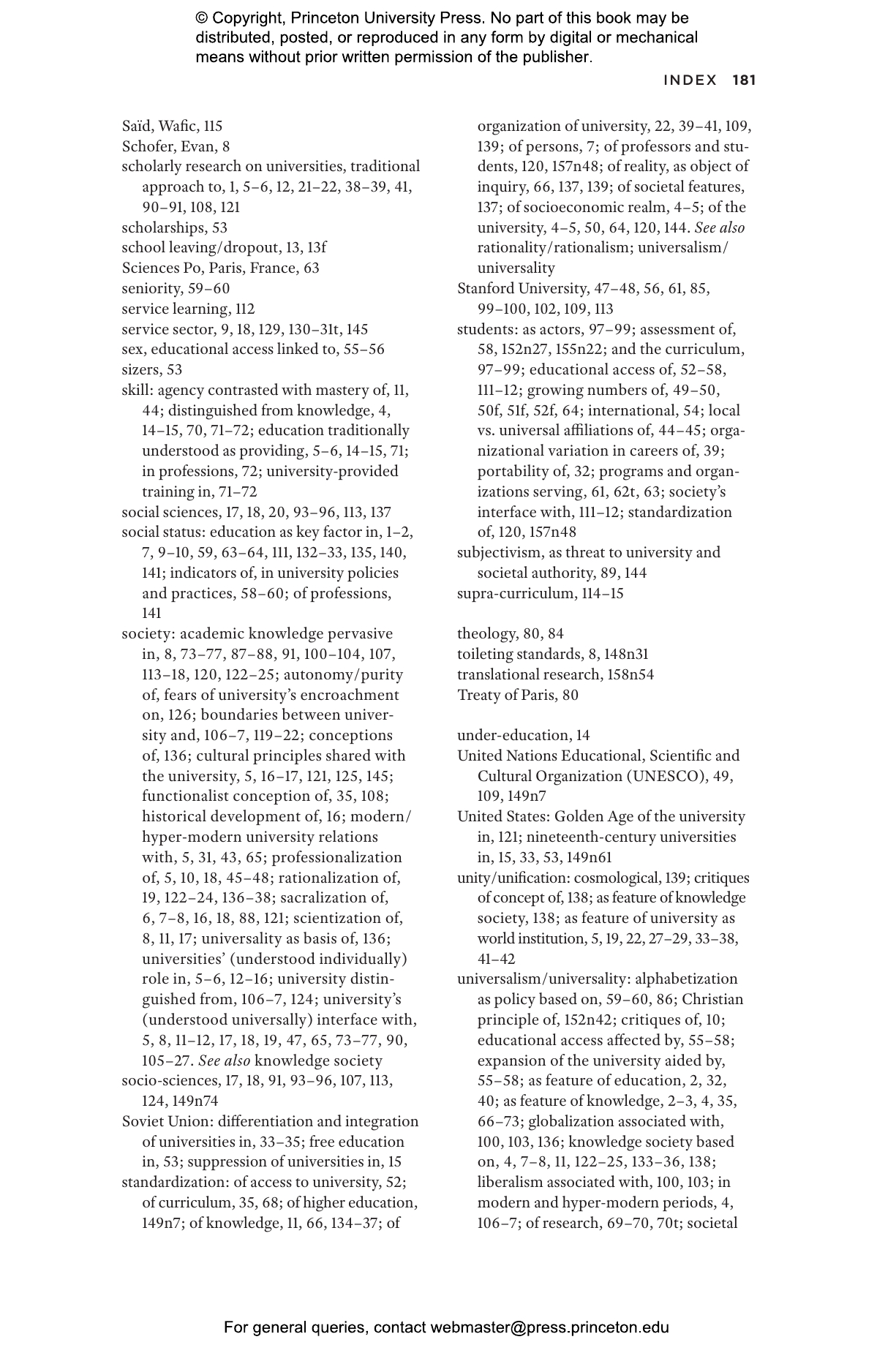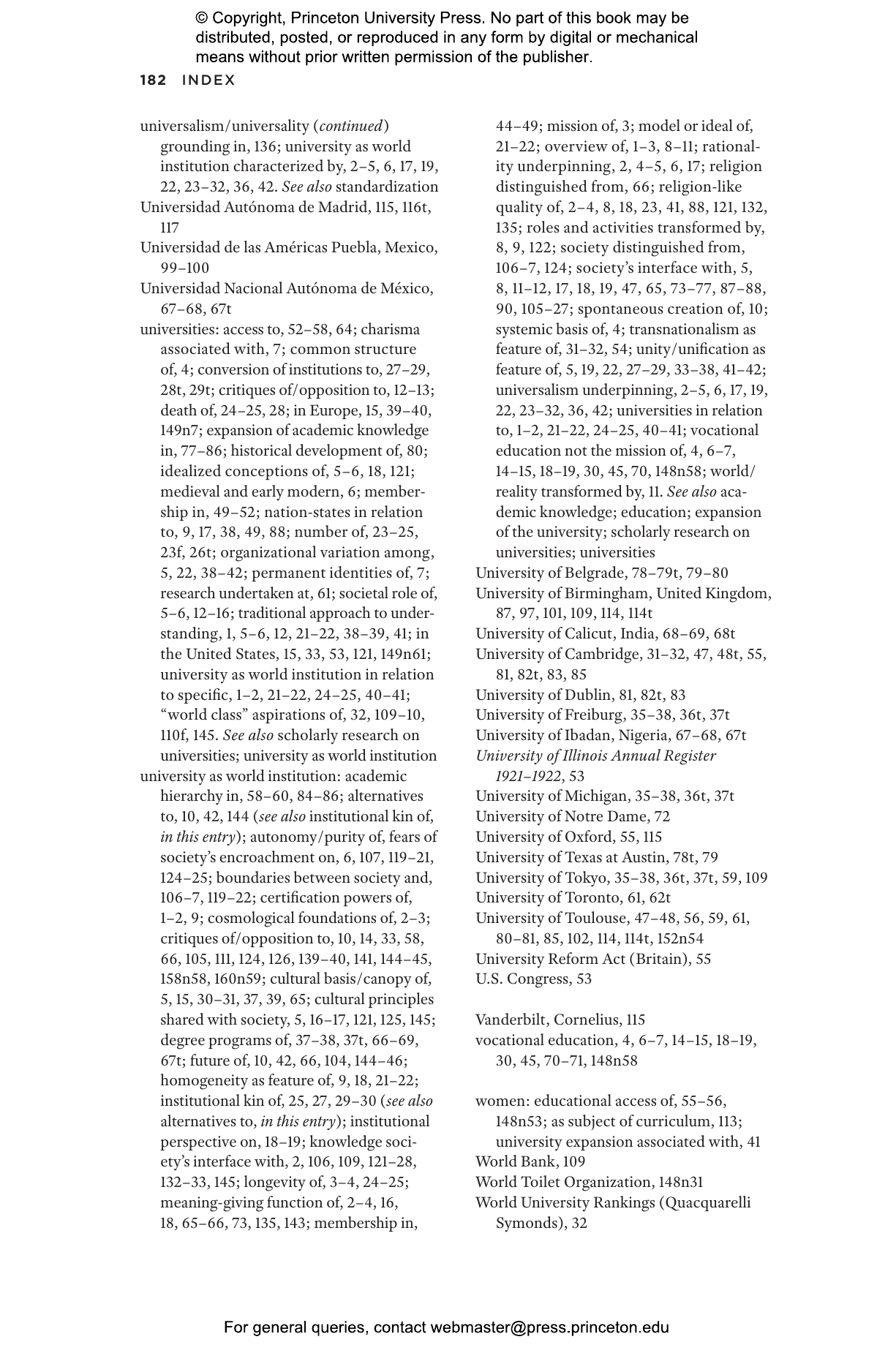The university is experiencing an unprecedented level of success today, as more universities in more countries educate more students in more fields. At the same time, the university has become central to a knowledge society based on the belief that everyone can, through higher education, access universal truths and apply them in the name of progress. This book traces the university’s rise over the past hundred years to become the cultural linchpin of contemporary society, revealing how the so-called ivory tower has become profoundly interlinked with almost every area of human endeavor.
David John Frank and John Meyer describe how, as the university expanded, student and faculty bodies became larger, more diverse, and more empowered to turn knowledge into action. Their contributions to society underscored the public importance of scholarship, and as the cultural authority of universities grew they increased the scope of their research and teaching interests. As a result, the university has become the bedrock of today’s information-based society, an institution that is now implicated in the solution to every conceivable problem.
But, as Frank and Meyer also show, the conditions that helped spur the university’s recent ascendance are not immutable: eruptions of nationalism, authoritarianism, and illiberalism undercut the university’s universalistic and rationalistic premises, and may threaten the centrality of the university itself.
David John Frank is professor of sociology at the University of California, Irvine, and the coauthor of Reconstructing the University. John W. Meyer is professor emeritus of sociology at Stanford University and the coauthor of Hyper-Organization and Science in the Modern World Polity.
"Frank and Meyer provide a unique and thorough assessment of the university as an institution and how it has persisted through the centuries, largely in the same form and despite numerous external challenges. . . . This book makes a useful contribution to the institutional analysis of universities and will certainly find a prominent place on reading lists for students and scholars of organizational sociology, higher education, and globalization."鈥擱ebecca Natow, Teachers College Record
"In this fascinating study, Frank and Meyer develop an original vision of the university as a sacred institution dotted with a 'universalized quality.' At the center of knowledge societies, this cultural canopy has diffused around the planet, structuring our worlds culturally and organizationally through multiple ramifications鈥攁t the level of actorhood, identities, professions, expertise, and more. Thus, it has gained 'supra-local and supra-temporal standing,' and has come to be dotted with a 'quasi-religious' authority. Mustering ample illustrative empirical data, the authors slowly but surely convince the reader of their argument, and thus deliver a crucial contribution to neoinstitutional scholarship, and to our broader understanding of modern universities. Their book is an absolute must-read for anyone wishing to understand the making of contemporary societies."鈥擬ich猫le Lamont, author of How Professors Think
"In this remarkable book, David John Frank and John Meyer provide a new interpretation of the rise of universities worldwide, based not on their contributions to practical affairs but instead on their role as ideological instruments and cultural canopies capturing global aspirations to rationality and universalism. The university emerges in their account as closer to a religious institution than to a commercial enterprise. Their analysis of worldwide data over nearly a millennium is impressive and it supports their thesis that the contemporary university plays a role analogous to the high church in the medieval period by providing authoritative answers to life's ultimate questions and practical concerns."鈥擲teven Brint, author of Two Cheers for Higher Education
"This is more than a book on higher education: it explores modern humanity and its many ties to the knowledge produced and certified by universities. Frank and Meyer offer a significant contribution to social theory and our understanding of the evolution of society."鈥擟hristine Musselin, Sciences Po, Paris
